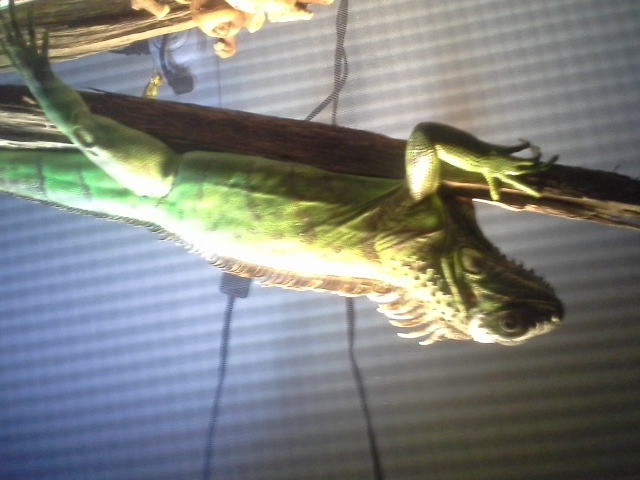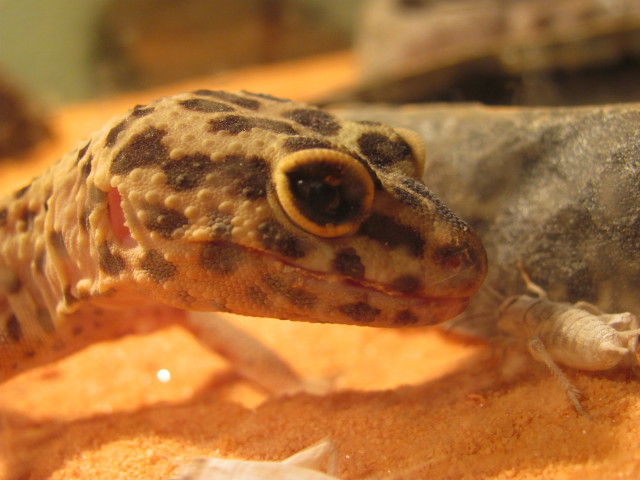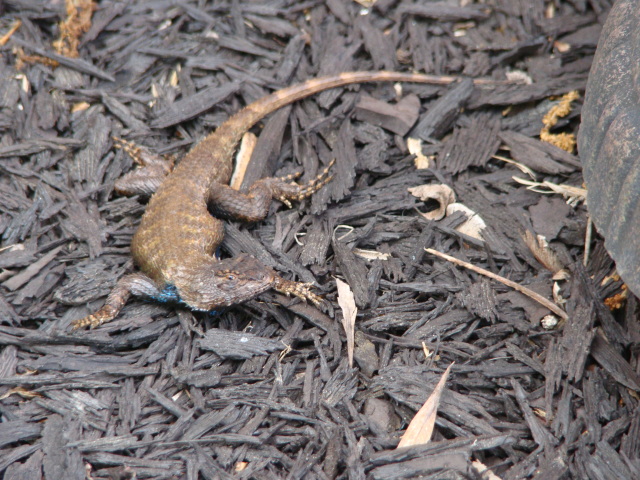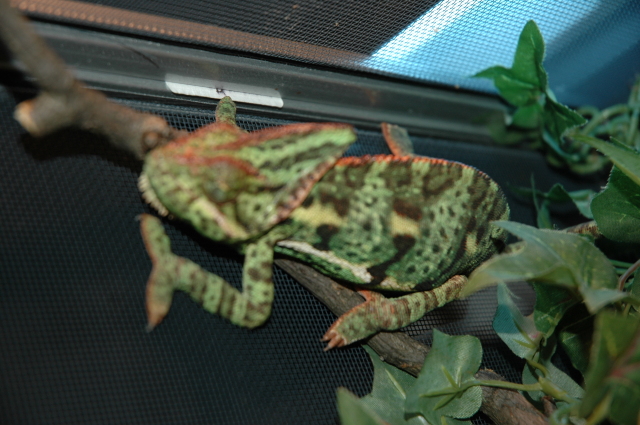QuestionI purchased a baby water dragon at PetSmart 7 years ago when I saw him sitting in a plastic bag with some of his snout and lower jaw missing. They said he would eventually suffocate and they would get credit for him. I purchased him anyway to save(or potentially save him). A breader (friend) told me to clean his wound with peroxide and put bacitracin (sic) on it and see what happens. 7 years later, he eats very well, loves to swim and is very playful. BUT, he has a growth or tumor on the side of his jaw. Took him to a vet who was shocked he was still alive. Said there was nothing to do.
While that may be true and I have given him some extra life, I am looking for a second opinion. I can't afford take him to another expensive vet. I just need to know what's going on with him. I know it is difficult to guess (or diagnose)without seeing him, but I just don't have another 150$. What do you think?
AnswerDear Claire,
I am truly amazed at your vet's reaction. It does not seem to me that your vet has much reptile experience. Some vets who have never treated reptiles sometimes attempt to treat them because they just think to themselves that it is like treating dogs and cats except they are smaller so they just get smaller doses of everything. I do not know why your vet would say there's nothing they can do and they are surprised he is still alive. I wonder if your vet even told you what his diagnosis was? Anyhow, the first thing that comes to my mind whenever I hear of water dragons, bearded dragons or reptiles getting growths on their jaws or other bony parts of their bodies is an abscess. An abscess is a localized infection that usually turns up in older lizards and takes on the appearance of a tumor in that it is a hard lump. Abscesses are different in reptiles than they are in mammals because they are filled with a hard deposit, not a liquid, pussy filling like in mammals. The removal of abscesses is easily done by experienced vets. They usually make an incision, then push the hard filling out and prescribe antibiotics.
Here is some additional info from anapsid.org, which is a very respectable reptile care website...
"Abscesses are interesting things... They do not necessarily occur at the site of an injury, and often do not occur in any proximity to an injury - they may form where there was no injury, and may form months after an injury was apparently well-healed.
What is an abscess?
Abscesses are localized infections that generally occur in conjunction with systemic infections. The site may swell noticeably, or the abscess may reside well into the underlying tissue with little change in the skin above. Often there is a slight swelling which begins to ooze a yellowish liquid which may form a crust. As the skin stretches over the underlying swelling, the scales are moved farther apart and the skin in between may be seen. The skin may be reddish with petechia (burst capillaries) or crusty with dried serous fluid.
Why do abscesses form?
Generally speaking, bacteria that gets into a wound, say a minor scratch or puncture wound, from claws. The body's immune system is unable to successfully fight the invader off, and so the wound becomes infected, forming an abscess."
Please evaluate what could be causing your dragon's immune system to become suppressed. Just an example, but you being gone for a week could very well be enough stress to result in a weakened immune system, but also evaluate if your housing conditions could be inducing stress or if there are any other major changes in your dragon's life.
In order to treat an abscess, you will need to seek out a veterinarian who can safely open up the abscess and remove the buildup. The dragon will need to have a betadine solution to irrigate the open area and also with antibiotics to prevent further infection. If you do not take care of this problem early, the infection can eat away at bone and cartilage and it could become necessary for a more major operation to be done. Also, if you do not follow through on the antibiotics afterward, your dragon can develop another abscess.
Abscesses are a common occurrence to take place at least once over the course of a lizard's lifetime. Any veterinarian claiming to treat exotics should have working knowledge of how to handle abscesses and this should almost seem a routine procedure.
Keep in mind, this is my best guess at the situation based on my experience with reptile anatomy and physiology and the most common issues that arise in reptiles. I would not say it is completely out of the question to be dealing with a tumor, but they really are rare in reptiles, much moreso than in cats and dogs. As long as your dragon keeps eating, this is a good sign. If he starts having a change in behavior, temperament, appetite, etc., this may indicate a more serious issue and you may want to seek out a better vet.
Remember:
Good Diet + UVB Radiation + Proper Temperatures + Set Daily Schedule = Healthy + Happy Reptile
Thank You,
Sara J Gwerder
President
Raptor Rescue Iguana Sanctuary
Shreveport, LA
www.RaptorRescue.org

 Iguanas breeding
Question
female ig earl
Make this sort and
Iguanas breeding
Question
female ig earl
Make this sort and
 mouth issues
Questionigore
QUESTION: Hi its me again Haley. I
mouth issues
Questionigore
QUESTION: Hi its me again Haley. I
 Identify lizard
QuestionUnknown lizard
QUESTION: I live in centr
Identify lizard
QuestionUnknown lizard
QUESTION: I live in centr
 Eyes twitching on a bearded dragon
QuestionQUESTION: What could cause my 5 year old male b
Eyes twitching on a bearded dragon
QuestionQUESTION: What could cause my 5 year old male b
 sick chameleon
QuestionCleos pic
QUESTION: Well, we did try the
sick chameleon
QuestionCleos pic
QUESTION: Well, we did try the